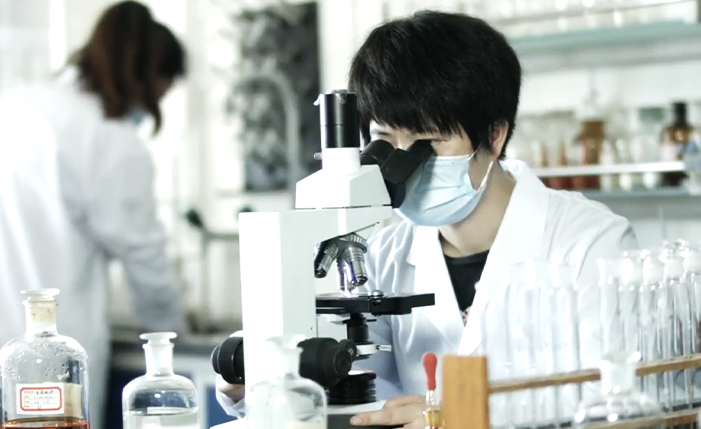
News
Lug . 29, 2024 16:45 Back to list
High-Quality Citric Acid as an Effective Chelating Agent for Iron in Various Applications
The Role of High-Quality Citric Acid as a Chelating Agent for Iron
Citric acid, a weak organic acid naturally found in citrus fruits, is renowned for its various applications in food preservation, flavoring, and industrial processes. Among its many beneficial properties, citric acid's ability to function as a chelating agent has garnered significant attention, particularly concerning its interaction with iron. This article explores the importance of high-quality citric acid as a chelating agent for iron, its mechanisms, applications, and benefits in various fields.
Understanding Chelation
Chelation is a chemical process wherein certain compounds bind to metal ions, forming a stable complex. This binding modifies the availability and reactivity of the metal, which can lead to various practical applications. Citric acid, with its three carboxyl groups, effectively binds to metal ions like iron, creating soluble complexes that can be used in myriad ways. The chelation process is particularly important in preventing metal-induced toxicity and enhancing nutrient absorption.
Citric Acid and Iron An In-Depth Interaction
When citric acid is introduced to iron, either in its ferrous (Fe²⁺) or ferric (Fe³⁺) form, it forms complexes that increase the solubility of iron in aqueous solutions. This characteristic is particularly useful in biological contexts, as it facilitates the absorption of iron in the human body. In many individuals, iron deficiency is a common nutritional concern, often leading to anemia. By utilizing citric acid, the bioavailability of iron can be enhanced, enabling better absorption and utilization in physiological processes.
In addition to promoting absorption, citric acid's chelating properties help mitigate the potential toxicity associated with excess iron in the body
. Free iron can catalyze the formation of free radicals, leading to oxidative stress and damage to cells. High-quality citric acid effectively binds excess iron, reducing its availability and protecting against oxidative damage.Applications in Agriculture
high quality citric acid chelating agent iron

In agriculture, citric acid serves as a crucial chelating agent in fertilizers. Many soils, especially those that are alkaline, can bind iron, making it unavailable for plant uptake. By incorporating high-quality citric acid into fertilizers, the solubility of iron increases, enabling plants to access this essential nutrient more effectively. This not only promotes healthy growth but also enhances overall crop yield and quality.
Industrial Applications
Citric acid is extensively used in various industrial applications, including the textile, cosmetic, and pharmaceutical sectors. In these industries, iron is often a contaminant, leading to undesirable effects on product quality. High-quality citric acid is employed to chelate iron, thus preventing discoloration and maintaining the integrity of products. Moreover, its biodegradable and non-toxic nature makes it an attractive alternative to synthetic chelating agents.
Sustainability and Environmental Considerations
As industries and agriculture continue to seek sustainable solutions, high-quality citric acid emerges as a eco-friendly alternative. Its natural origin and biodegradability align with the growing emphasis on reducing synthetic chemical use and enhancing environmental sustainability. Chelating agents like citric acid contribute to reducing heavy metal accumulation in the ecosystem, promoting healthier soil and water systems.
Conclusion
High-quality citric acid stands out as an efficient and versatile chelating agent for iron, with a broad range of applications in health, agriculture, and industry. Its ability to enhance iron absorption, prevent toxicity, and support sustainable practices makes it invaluable in our pursuit of health and environmental stewardship. As research continues to uncover the full potential of citric acid, its role as a chelating agent will likely expand, showcasing new and innovative applications across diverse fields.
-
Polyaspartic Acid Salts in Agricultural Fertilizers: A Sustainable Solution
NewsJul.21,2025
-
OEM Chelating Agent Preservative Supplier & Manufacturer High-Quality Customized Solutions
NewsJul.08,2025
-
OEM Potassium Chelating Agent Manufacturer - Custom Potassium Oxalate & Citrate Solutions
NewsJul.08,2025
-
OEM Pentasodium DTPA Chelating Agent Supplier & Manufacturer High Purity & Cost-Effective Solutions
NewsJul.08,2025
-
High-Efficiency Chelated Trace Elements Fertilizer Bulk Supplier & Manufacturer Quotes
NewsJul.07,2025
-
High Quality K Formation for a Chelating Agent – Reliable Manufacturer & Supplier
NewsJul.07,2025
